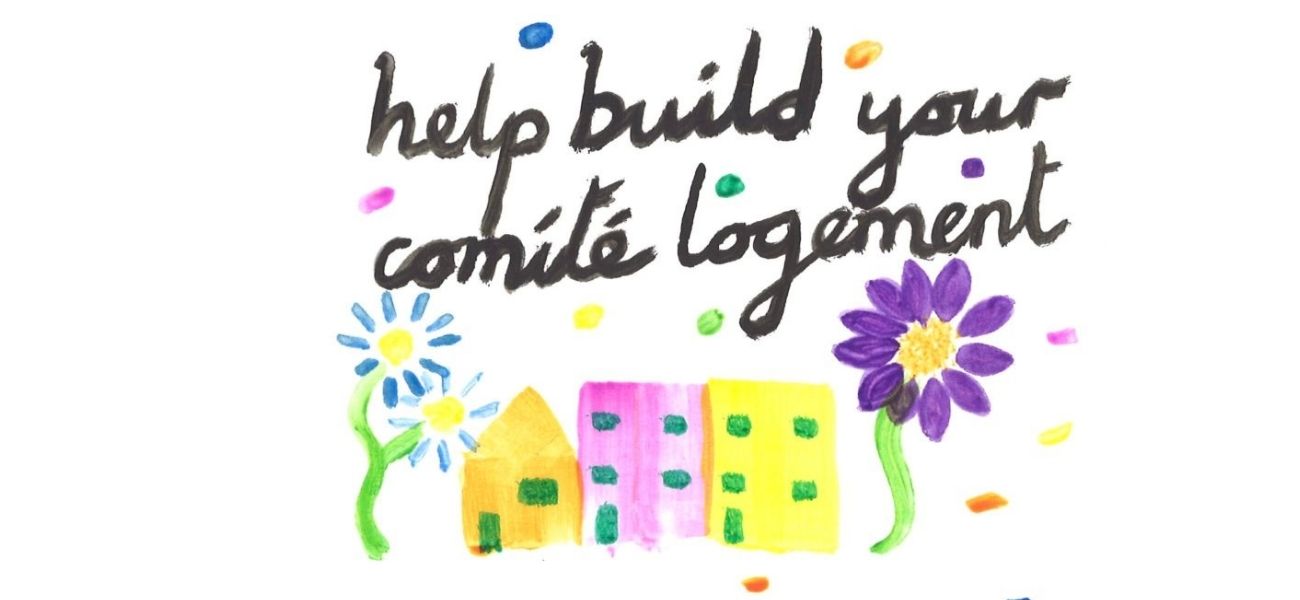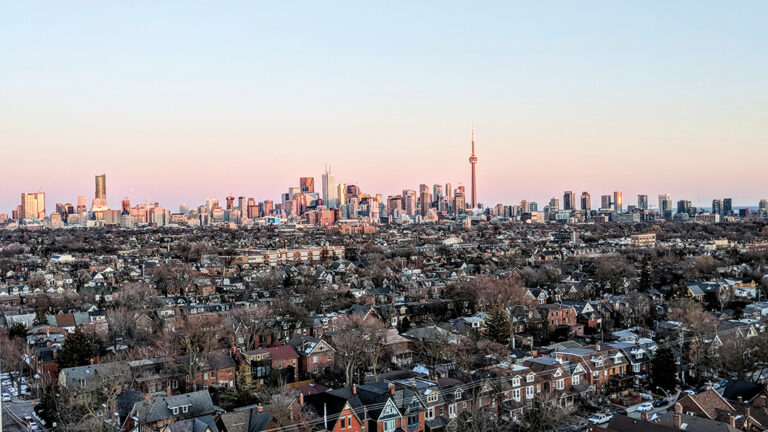Long perceived as a Mecca for single-family homeowners, the West Island of Montréal has been a lonely place for tenants seeking support services. A grant from the Centre, however, is helping turn the tide by funding the establishment of its first housing association.
Traditionally an anglophone stronghold, the West Island of Montreal is often misunderstood as being composed entirely of homeowners. In reality, it is home to a significant number of tenant households. “The West Island is nearly a third of the island of Montréal, so it’s a very large territory. It also contains a diversity of people,” explains Alexandra Laham, project coordinator for housing issues at the Table de Quartier Sud de l’Ouest de l’Île, a non-profit community organization that works to improve the quality of life for citizens living in southern West Island.
“[Sure] there are a lot of single-family homes, a lot of economically well-off people live [here]. But these preconceptions hide a lot of other issues that are present on the territory. It doesn’t mean that we don’t have [diverse] housing [needs], typologies and socio-economic issues.”
For example, tenant households account for 40% of residences in Dorval and Ste-Anne-de-Bellevue and 30% in Pierrefonds-Roxboro.
Some communities struggle with housing affordability more than others. According to Duncan McLachlan, the project coordinator for the comité logement (housing association) at the TQSOI, “over 50% of tenants in Pointe-Claire spend more than 30% of their income on housing. [Basically] tenants are facing the same issues as [in Montreal].”
Although the West Island has around 22,000 tenants, there was no organization specializing in providing information and support to renters facing situations such as evictions, unfair rent increase or poor living conditions.
“The preconception [that there aren’t many tenants] is probably one of the reasons why we actually don’t have a comité logement. There’s this assumption that perhaps there isn’t a need for [it],” says Laham.
And yet, this could not be farther from the truth.
Pandemic prompts change
The fragility of tenant households was particularly evident during the Covid-19 pandemic.
“Covid-19 has affected West Islanders in a similar way that it has tenants [elsewhere],” adds Laham. “For certain tenants, it limited their capacity to pay their rent, which can lead to eviction. The rental market is also heated, landlords are looking to make as much money as they can, which can lead to abusive [rent] increases.”
The pandemic has also reversed renters’ traditional preference for urban locations: with remote working prioritized, many renters jumped on the opportunity to move away from the city core in hopes of getting a better price-space ratio or a more relaxed lifestyle.
Although the pandemic may have adversely affected financial outcomes, it has also served as a catalyst for the establishment of West Island’s first housing association.
Advocacy reaches the ’burbs
A housing association plays an important role in community-based approaches to local housing needs: it is a key player in the affordable-housing ecosystem, constituting an important reference point for tenants while assessing housing gaps and influencing local policy.
“During the pandemic, an adjacent housing association, le Comité logement Saint-Laurent, received funding to help support West Island tenants, and we discovered there was a huge demand for support for tenants that we previously [weren’t aware of],” explains Jia Chen Mi, a former TQSOI project coordinator who completed the feasibility study, and the grant application, that led to the establishment of the comité logement.
Through research and data analysis, the staff at TQSOI determined a housing association would be the organizing structure best suited to fill the gaps in tenant support needs.
“The first step was exploratory in nature,” explains Mi. “We looked into how current [housing associations] work and we have interviewed many existing comités logement to see how they are funded, what are their mandates, what are the areas of activities, in what way do they support tenants. And [ultimately,] if it was something realistically feasible in the West Island.”
This led to the development of a plan and a grant application. Realizing the value of the project, and its potential to strengthen the sector, the Community Housing Transformation Centre awarded $135,600 for the establishment of the Comité logement du West Island.
The organization will provide information to and support West Island tenants in their housing rights through information campaigns and individual consultations.
It will also raise awareness about housing issues such as unsanitary living conditions and access to affordable housing. This includes collaborating with tenants and representing them in advocating for policy change at the municipal level.
“I think the crucial thing to add about comités logement is that they are fundamentally tenant driven-democratic organizations,” adds McLachlan. “So, this first phase for the project is crucial to ensuring this is the kind of organization that West Island tenants want.”
Mi foresees the funding will fast-track the development process.
“The grant [favours] a strategic and planned-out process to establish a housing association instead of, [as] in many cases around Montreal, volunteers putting in their own time and figuring things out in the dark. Instead, this grant allows us to have more staff, more resources to have a more efficient plan and establishment process.”
More importantly, West Islanders will no longer need to reach out to organizations outside of their municipalities for support.



